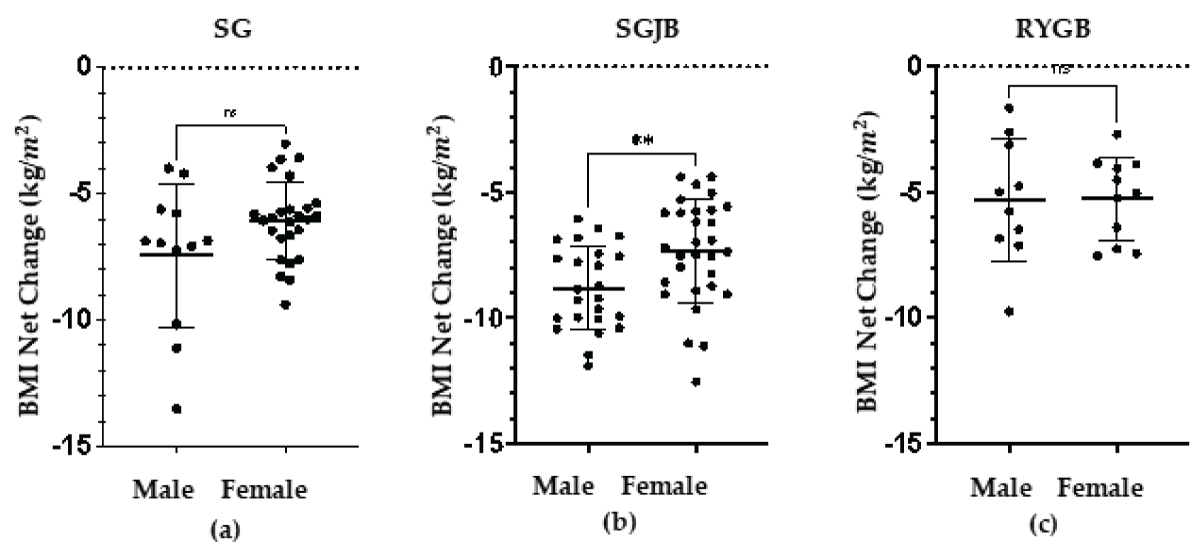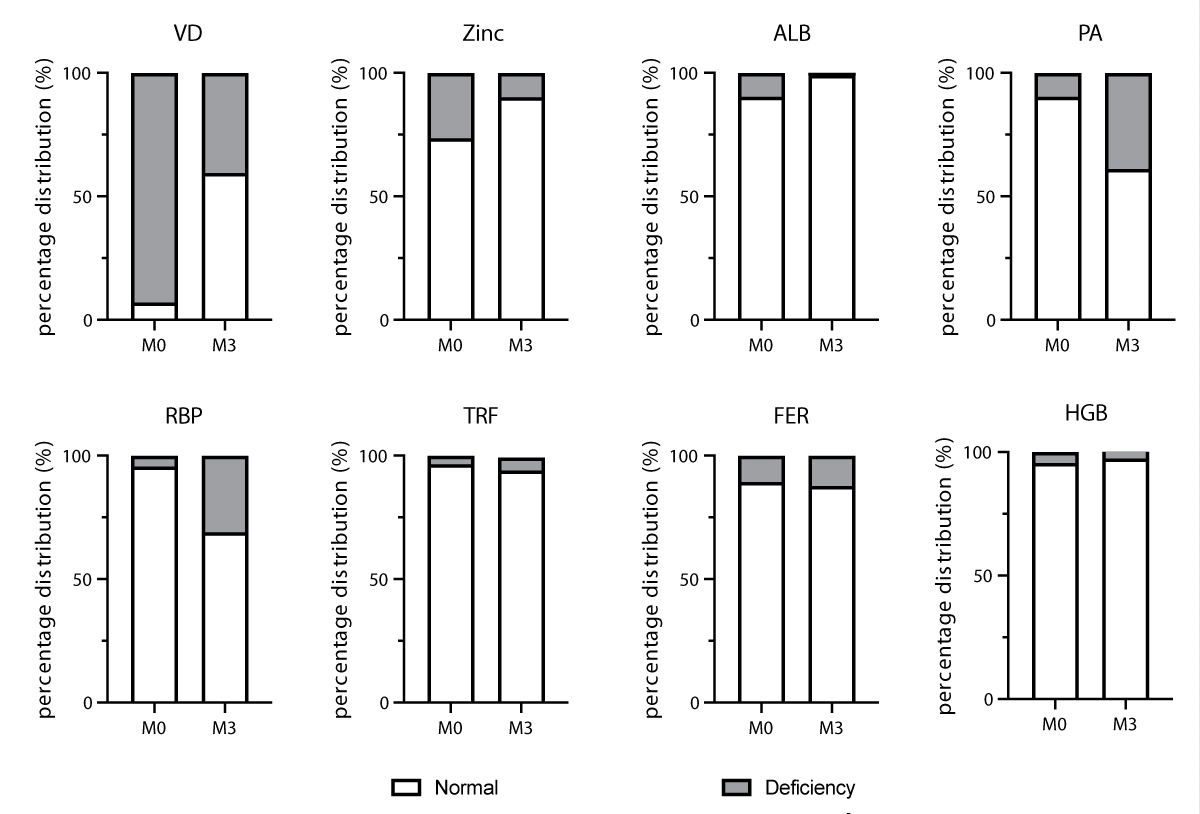Abstract
Background: Nutrient deficiency and dietary restriction are common after bariatric surgery, regardless of weight loss. We aimed to evaluate the postoperative change in dietary patterns.
Methods: 113 patients who underwent bariatric surgery from 2018 to 2021 were followed up at baseline and three months after surgery. Anthropometric and biochemical data were collected retrospectively, and the diet was analyzed by a food frequency questionnaire (FFQ).
Results: Postoperative weight, body mass index (BMI), and % body fat decreased significantly (p < 0.001). Prealbumin (PA) and retinol-binding protein (RBP) levels decreased significantly at 3 months post-surgery (p < 0.001); however, vitamin D (VD) , zinc, and albumin (ALB) levels increased (p < 0.05). Hemoglobin (HGB) in the Roux-en-Y gastric bypass (RYGB) group was lower than that in the sleeve gastrectomy with jejunal bypass (SGJB) and the sleeve gastrectomy (SG) group (p < 0.05). The intake of cereals, tubers, legumes, meat, poultry, and aquatic products decreased (p < 0.001), whereas the intake of vegetables (except for soybeans), fruit, eggs, milk and dairy products, and water increased (p < 0.05). The RYGB group had a higher intake of cereals, tubers, and legumes than that in the other groups (p < 0.05), although there was no association between the reduction of intake in these food groups and weight loss.
Conclusion: Bariatric surgery has a beneficial impact on weight loss and dietary patterns. Preoperative nutritional assessment and continuous follow-up are critical with bariatric surgery to prevent weight regain and malnutrition.








